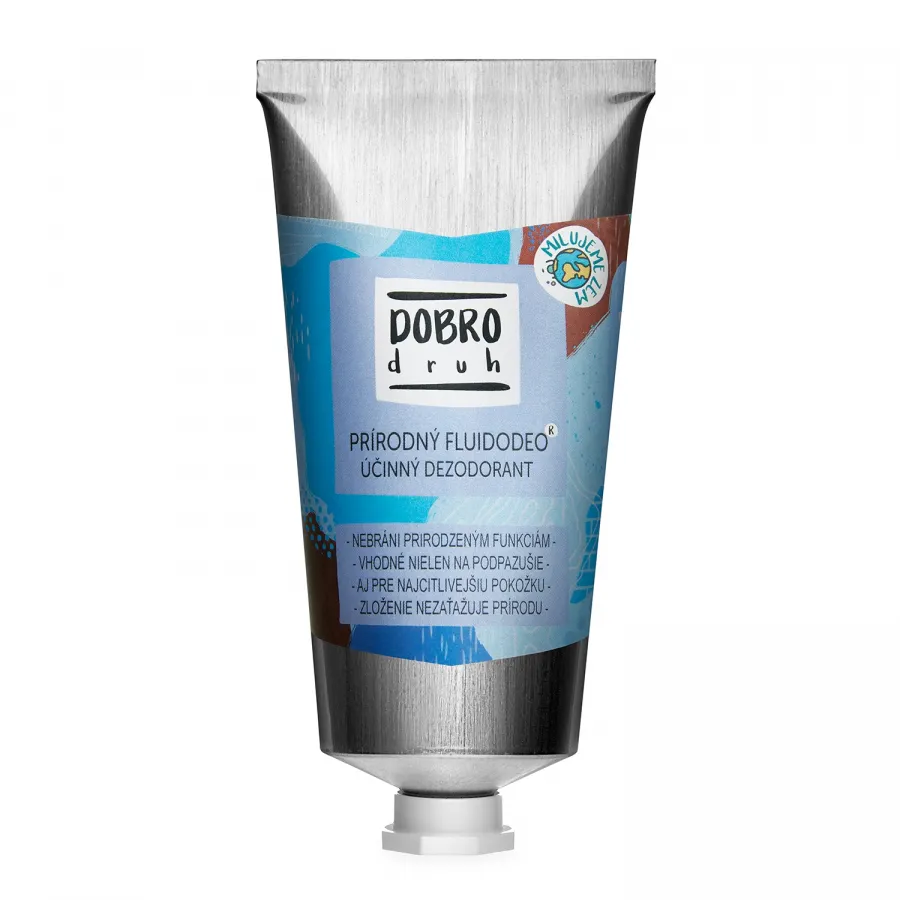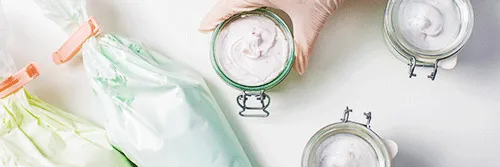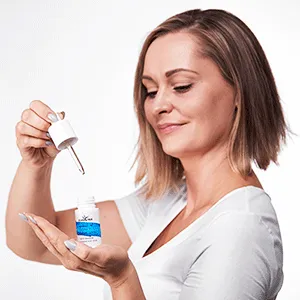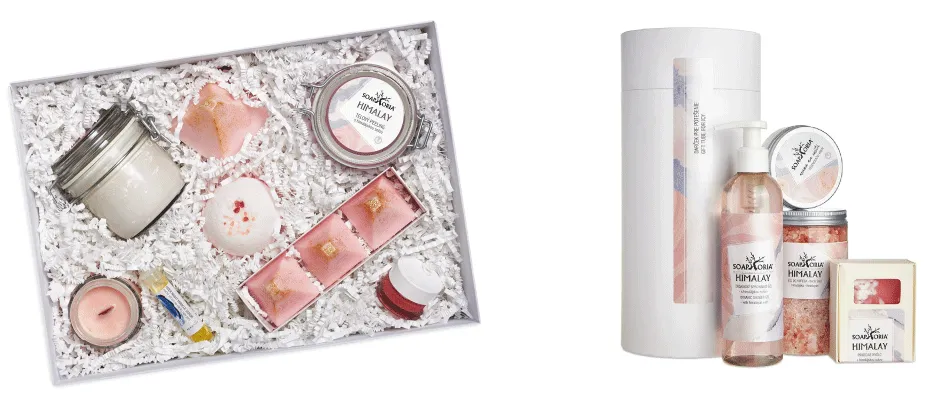Antiperspirant products, fragrant armpits
WHAT IS SWEATING
Sweating, also known as transpiration, is a natural process by which our body gets rid of excess heat and maintains body temperature in an optimal range. Sweating involves the production and secretion of sweat through a number of sebaceous glands located in the skin. This process is controlled by the nervous system and can be affected by various factors such as ambient temperature, physical activity, emotions and hormonal imbalance.
There are several types of sebaceous glands that produce sweat. The largest amount is found in the armpits, on the back and on the chest. Naturally, people vary in how much sweat they produce and how often they sweat. For example, men tend to produce more sweat than women, and those who are older, overweight, or in hot and humid environments also sweat more.
Sweating can be a symptom of various diseases, such as fevers, infections, menopause and some hormonal disorders. Excessive sweating is called hyperhidrosis and can be very disruptive and affect daily life. There are various ways to deal with excessive sweating, including medication and surgery.
There are some simple measures you can take to reduce sweating, such as wearing appropriate clothing, drinking enough water, using deodorant, and avoiding hot and humid environments. If you have problems with excessive sweating, it may be helpful to consult a doctor who can recommend the best solutions for your situation.
WHAT TYPES OF DEODORANTS ARE THERE?
Deodorant is an essential product in personal hygiene and helps eliminate unpleasant odors associated with sweating. There are two main types of deodorants - chemical and natural. The difference between these two types of deodorants is in the ingredients used and their effects on the skin.
Chemical deodorants contain ingredients such as aluminum and parabens, which block the sweat glands and thus prevent the secretion of sweat. These ingredients also prevent sweat from breaking down and thus eliminate odor. Chemical deodorants are effective in fighting sweat and odor, but they have several negative effects. Some of these ingredients can irritate sensitive skin, and aluminum from chemical deodorants is even thought to be linked to the risk of breast cancer.
On the other hand, natural deodorants are made from natural ingredients such as essential oils, minerals and plant extracts. These ingredients help to neutralize odor and keep the skin dry. Natural deodorants do not contain any harmful chemicals and are gentle on the skin. The ingredients in natural deodorants also provide hydration and improve the overall quality of the skin.
In addition, natural deodorants are often better for the environment because they use natural resources and pollute the environment less. These products are often packaged in ecological packaging and often do not contain ingredients such as parabens, sulfates and sulfates that can be harmful to the environment.
The main difference between chemical and natural deodorants is in the ingredients and their effects on the skin. While chemical deodorants can be effective in fighting sweat and odor, they have several negative effects on the skin and are often unsuitable for sensitive skin. On the other hand, natural deodorants are gentle on the skin and have positive effects on the skin. Also, natural deodorants are often better for the environment because they contain natural resources and are often packaged in eco-friendly packaging.
It's also important to note that switching from chemical deodorants to natural ones can take some time. Since chemical deodorants block the sweat glands, the body gets used to them and it may take several weeks for the body to adapt to a natural deodorant. During the transition to a natural deodorant, the skin may be more sensitive and temporary symptoms such as increased sweating or odor may occur. However, these symptoms usually disappear quickly and the skin adapts to the new deodorant.
WHAT IS SWEATING
Sweating, also known as transpiration, is a natural process by which our body gets rid of excess heat and maintains body temperature in an optimal range. Sweating involves the production and secretion of sweat through a number of sebaceous glands located in the skin. This process is controlled by the nervous system and can be affected by various factors such as ambient temperature, physical activity, emotions and hormonal imbalance.
There are several types of sebaceous glands that produce sweat. The largest amount is found in the armpits, on the back and on the chest. Naturally, people vary in how much sweat they produce and how often they sweat. For example, men tend to produce more sweat than women, and those who are older, overweight, or in hot and humid environments also sweat more.
Sweating can be a symptom of various diseases, such as fevers, infections, menopause and some hormonal disorders. Excessive sweating is called hyperhidrosis and can be very disruptive and affect daily life. There are various ways to deal with excessive sweating, including medication and surgery.
There are some simple measures you can take to reduce sweating, such as wearing appropriate clothing, drinking enough water, using deodorant, and avoiding hot and humid environments. If you have problems with excessive sweating, it may be helpful to consult a doctor who can recommend the best solutions for your situation.
WHAT TYPES OF DEODORANTS ARE THERE?
Deodorant is an essential product in personal hygiene and helps eliminate unpleasant odors associated with sweating. There are two main types of deodorants - chemical and natural. The difference between these two types of deodorants is in the ingredients used and their effects on the skin.
Chemical deodorants contain ingredients such as aluminum and parabens, which block the sweat glands and thus prevent the secretion of sweat. These ingredients also prevent sweat from breaking down and thus eliminate odor. Chemical deodorants are effective in fighting sweat and odor, but they have several negative effects. Some of these ingredients can irritate sensitive skin, and aluminum from chemical deodorants is even thought to be linked to the risk of breast cancer.
On the other hand, natural deodorants are made from natural ingredients such as essential oils, minerals and plant extracts. These ingredients help to neutralize odor and keep the skin dry. Natural deodorants do not contain any harmful chemicals and are gentle on the skin. The ingredients in natural deodorants also provide hydration and improve the overall quality of the skin.
In addition, natural deodorants are often better for the environment because they use natural resources and pollute the environment less. These products are often packaged in ecological packaging and often do not contain ingredients such as parabens, sulfates and sulfates that can be harmful to the environment.
The main difference between chemical and natural deodorants is in the ingredients and their effects on the skin. While chemical deodorants can be effective in fighting sweat and odor, they have several negative effects on the skin and are often unsuitable for sensitive skin. On the other hand, natural deodorants are gentle on the skin and have positive effects on the skin. Also, natural deodorants are often better for the environment because they contain natural resources and are often packaged in eco-friendly packaging.
It's also important to note that switching from chemical deodorants to natural ones can take some time. Since chemical deodorants block the sweat glands, the body gets used to them and it may take several weeks for the body to adapt to a natural deodorant. During the transition to a natural deodorant, the skin may be more sensitive and temporary symptoms such as increased sweating or odor may occur. However, these symptoms usually disappear quickly and the skin adapts to the new deodorant.
HOW TO REDUCE EXCESSIVE SWEAT?
1. Antiperspirants - are products that block pores and reduce the amount of sweat that reaches the surface of the skin. These products are often available as sprays, creams, or sticks and can help relieve excessive sweating.
2. Botulinum Toxin - Also known as Botox, this medication is applied directly to the area where you sweat the most, such as your armpits or palms, and blocks the nerve signals that trigger sweat production. This procedure is often performed in cosmetic clinics and has an effect for a period of several months.
3. Surgical solutions - there are surgical procedures that can alleviate excessive sweating. For example, a sympathectomy is surgery to remove or block the nerves that control sweat production. This procedure is often performed with excessive sweating of the palms or armpits.
4. Change in diet and lifestyle - excessive sweating can be influenced by diet and lifestyle. Reducing caffeine and alcohol consumption and increasing water intake can help relieve excessive sweating. Regular physical activity and weight loss can also help relieve excessive sweating.
Sweating is a natural process that has an important function in maintaining body temperature. However, if you have problems with excessive sweating, it can have a significant impact on your life. There are many ways to relieve excessive sweating, and if you are having trouble, it is important to consult a doctor who can help you find the best solution for your situation.







































